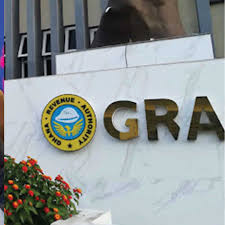The Ghana Revenue Authority (GRA) has tasked leaders of faith-based organisations to propagate to its members the essence of attaching the same commitment to the payment of tithes to that of the mandatory tax payment.
According the Kumasi Area Head, Agnes Akosua Boateng, tax compliance has become imperative for states, particularly in our part of the world on account of current global economic challenges.
To restore sanity into the revenue mobilisation space, she therefore, stressed the need for a collaboration between GRA and religious bodies to ensure members fulfil both civic and religious duties.
Making that passionate plea, she urged Christians and Muslims to pay their taxes religiously just as they pay tithes and Muslim offertories “so that our country Ghana can get the required revenue to provide the needed amenities including the financing of the Free SHS Programme.”
Contradiction
While we may commend the GRA Task Force teams for accelerating sensitization programmes in making the larger citizenry tax compliant, The Inquirer is particularly worried that the politicians who need the revenues to sustain their political agendas and social programmes in national development are avoiding the conversation.
The Inquirer is concerned because the politicians are the very people who would put pressure on revenue mobilisation agencies and set targets for them, with occasional veiled threats, instead of motivational packages that sustains revenue mobilisation.
As the politicians themselves would appreciate, such an abiding policy and culture is necessary in order to limit the pressure on the politician going about each year or elections calendar striving to look good in the eyes of the electorate while, indeed, we have a poor tax compliance culture as a nation that we must addressed through policies that only politicians can develop by law.
More tax compliance inclusivity
Unfortunately for both parties, who should be seen in normal times defending policies on revenue compliance and accelerated infrastructural development, the unwritten agreement between the two flagbearers and their communicators appear to be encouraging tax non-compliance, even while propagating projects and programmes that can only be prosecuted by funding from revenue sources.
Utmost commendation
We commend the GRA for the crusade as a matter of civic duty in a nation where we make a lot of noise over health and education as well as job creation and food security.
We also commend the GRA for its observation on citizens’ culture of giving to Church and social events, including funerals.
That is why it is imperative to remind particularly our informal economy actors most of whom are engaged in floating economies and without addresses, that what they see and their sons and daughters chase abroad came about because citizens had trained themselves to put nation first.
In the opinion of The Inquirer, that is also the reason why flagbearers must come clean on responsible tax compliance, instead of dodging tax compliance issues and yet promising what only taxes can do and, indeed, do so vigorously.
Source:inquirernewsroom.com

